Shadow Of Mordor: Performance Testing And Benchmarks
Fresh on the heels of the final Hobbit movie, we bring you our game performance review of Middle-Earth: Shadow of Mordor. This innovative title has a few pleasant surprises up its sleeve when it comes to hardware requirements.
Results: 1440p, 4K, CPU And Graphics Benchmarks
1440p @ Medium Details
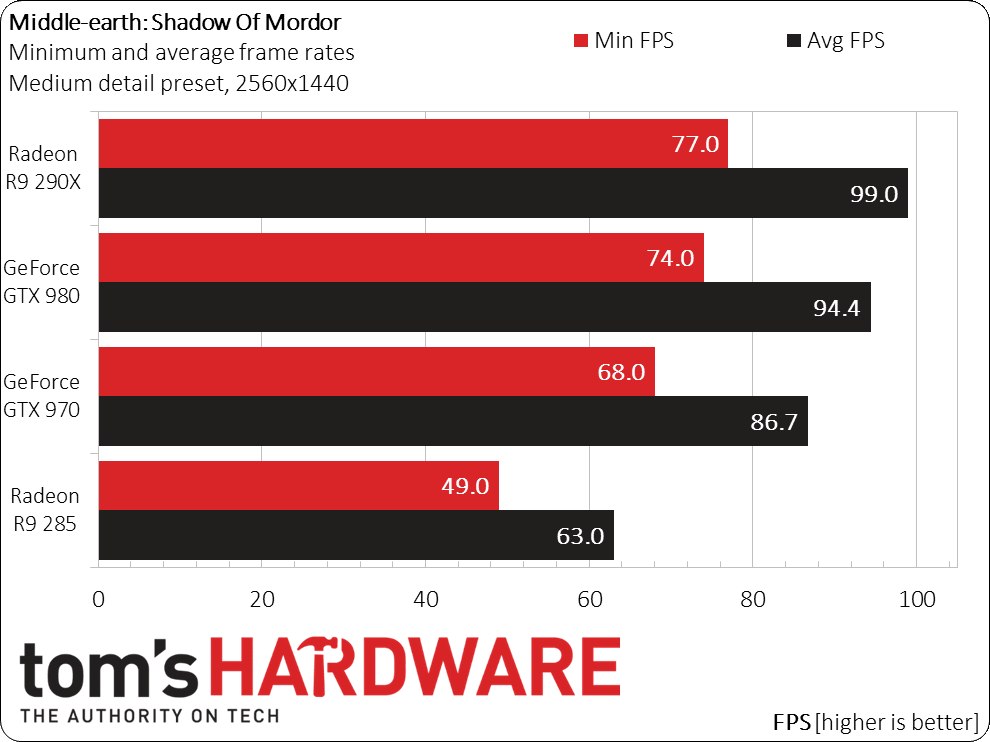
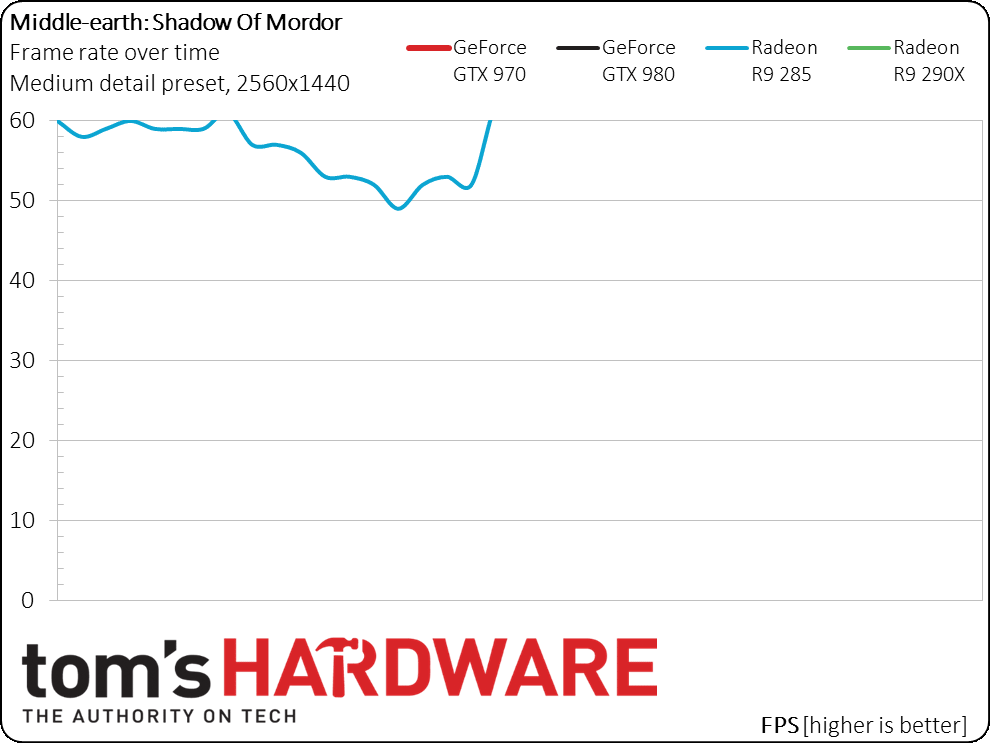
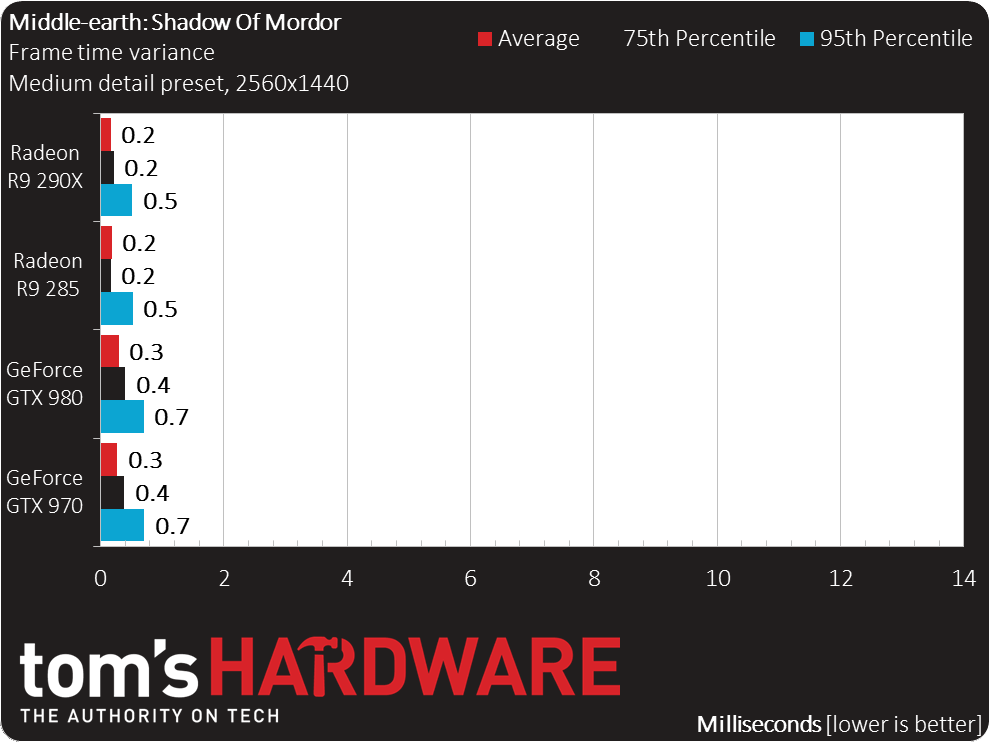
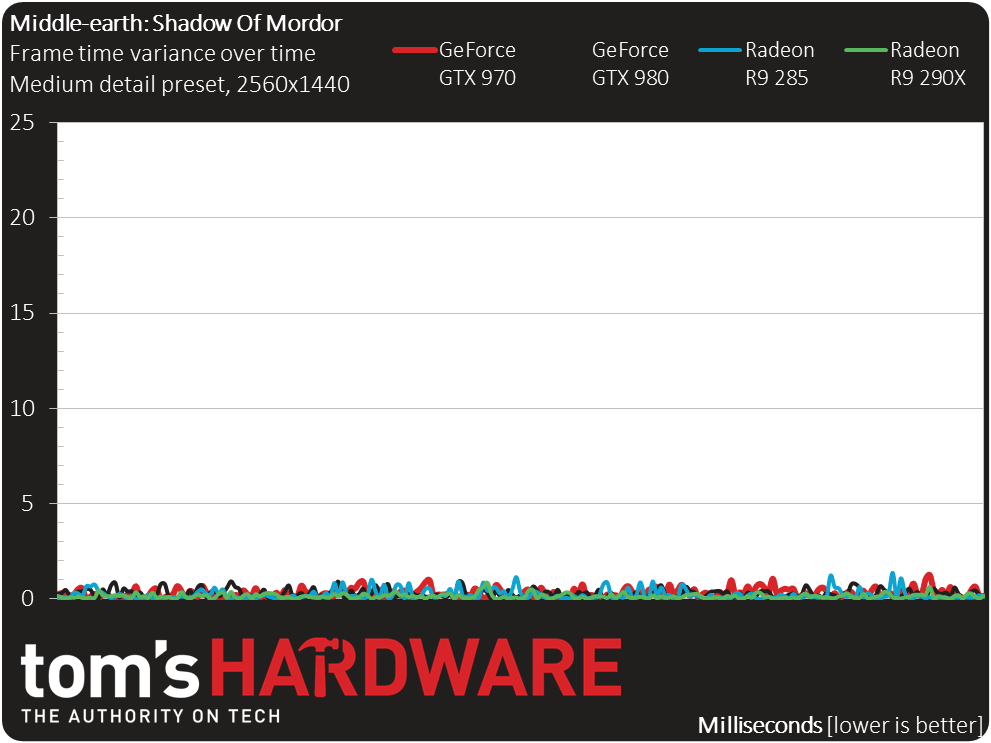
AMD's 285 is the only card that dips below 60 FPS, but still manages a smooth minimum of 49. So far, it looks like Shadow of Mordor isn't a game that mid-range graphics cards have trouble running smoothly.
1440p @ Ultra Details
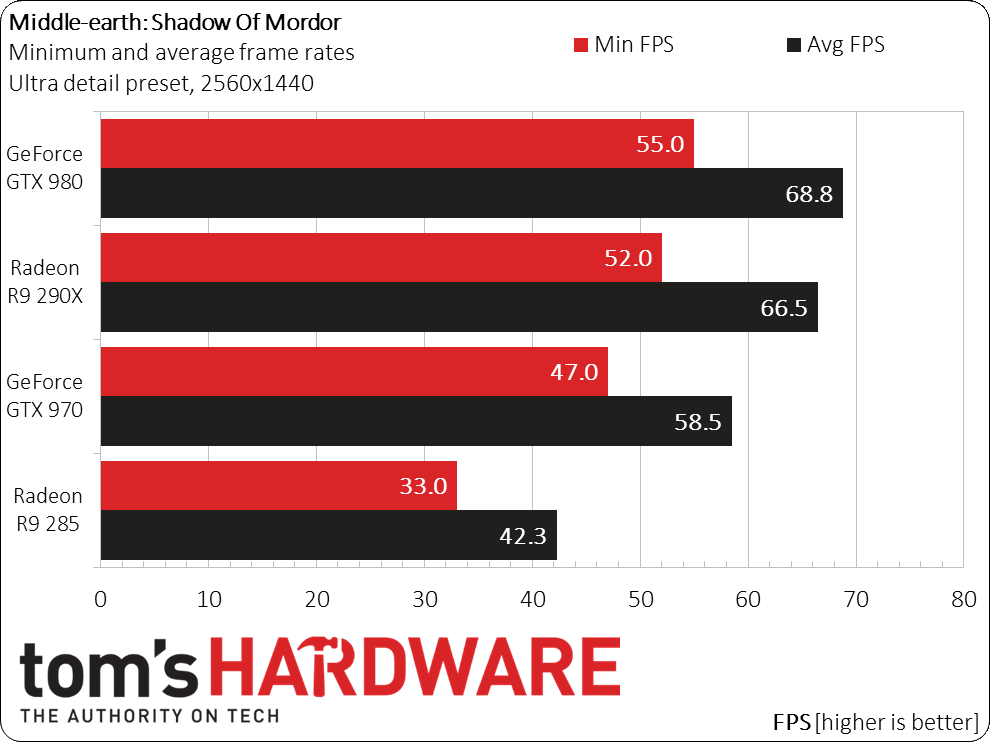
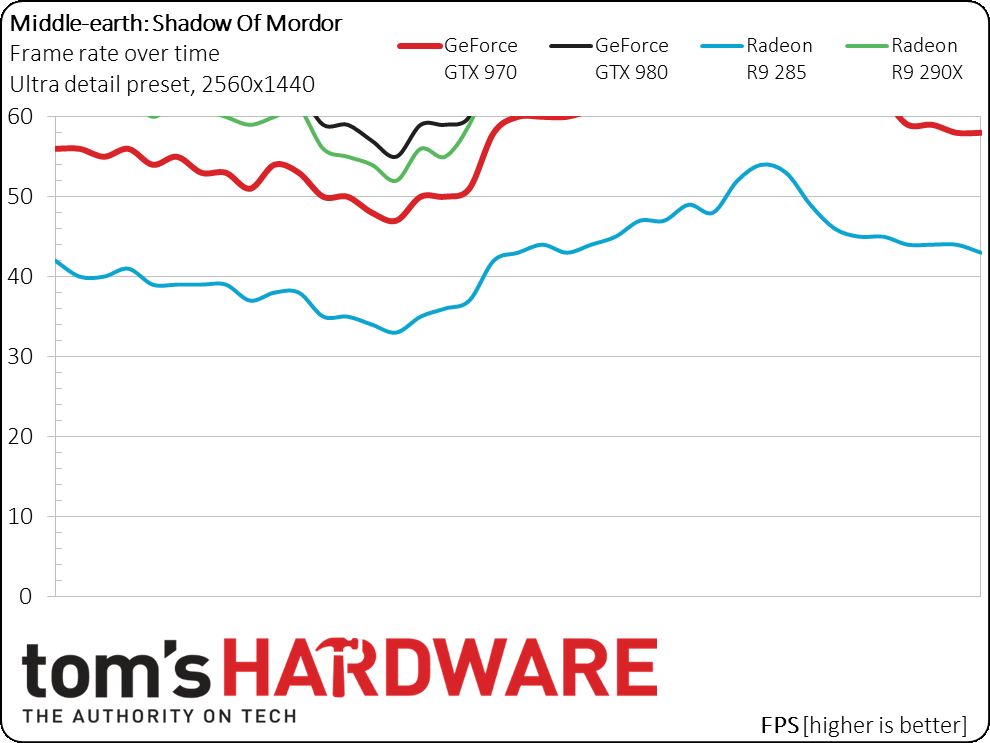
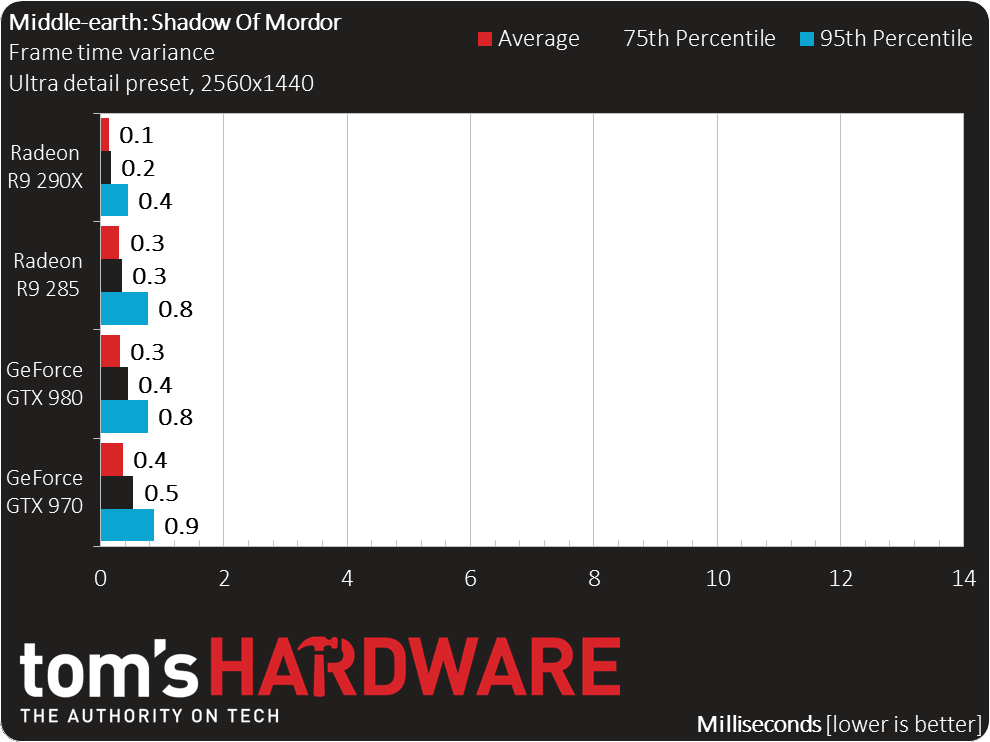
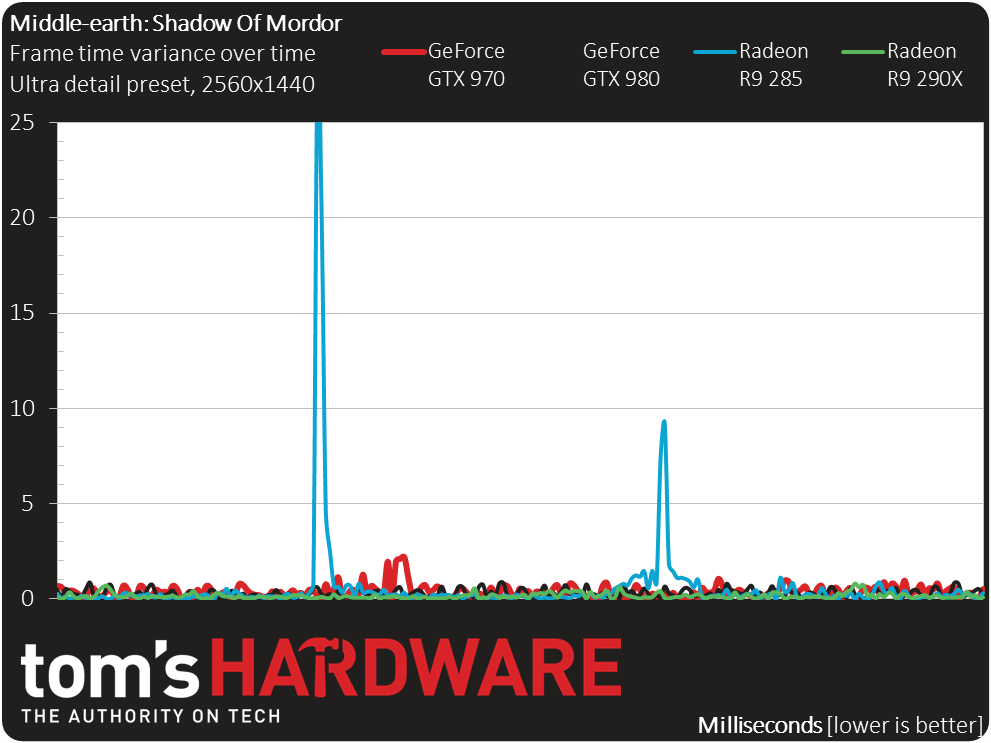
Increasing the test resolution to 1440p hurts the mid-range cards. AMD's Radeon R9 285 barely keeps its head above 30 FPS, while the Radeon R9 290X, GeForce GTX 970 and 980 keep on trucking.
4K @ Ultra Details
For our last graphics-oriented test, we dial in 3840x2160. We added the dual-GPU Radeon R9 295X2, but unfortunately couldn't get Nvidia's GeForce GTX 970 or 980 to work in SLI, since cards from different brands wouldn't cooperate.
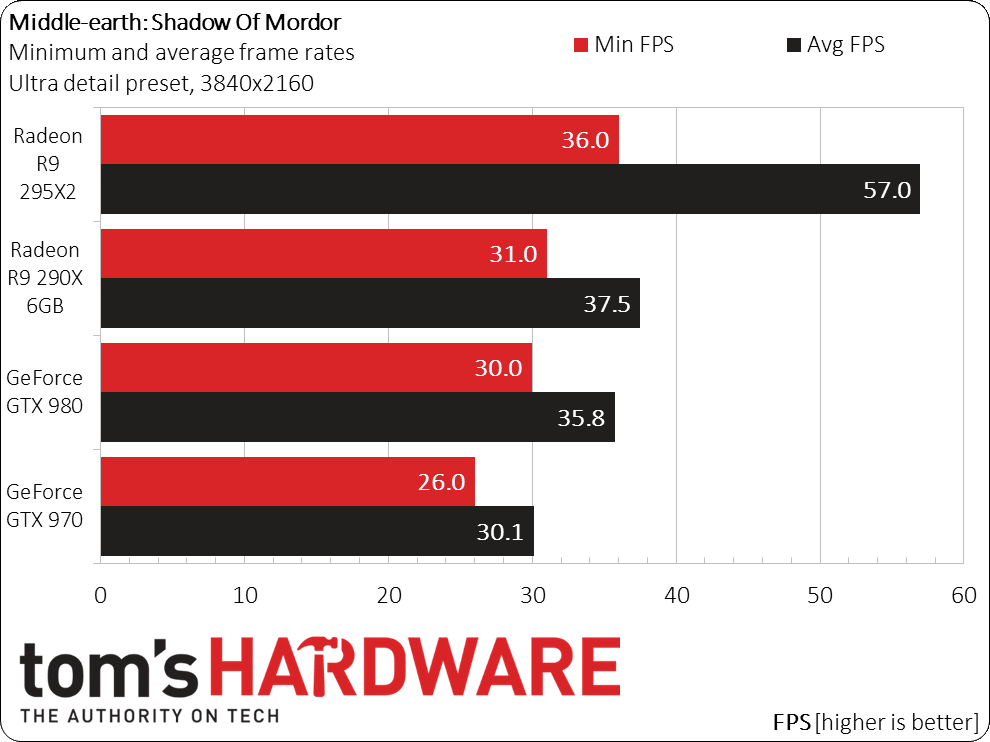
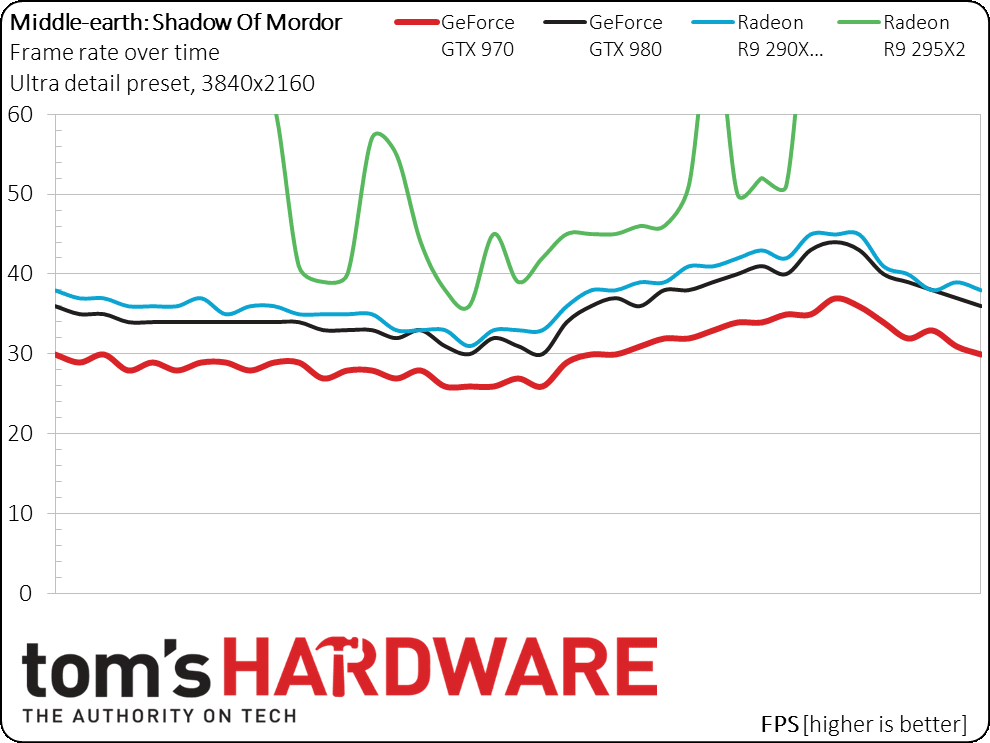
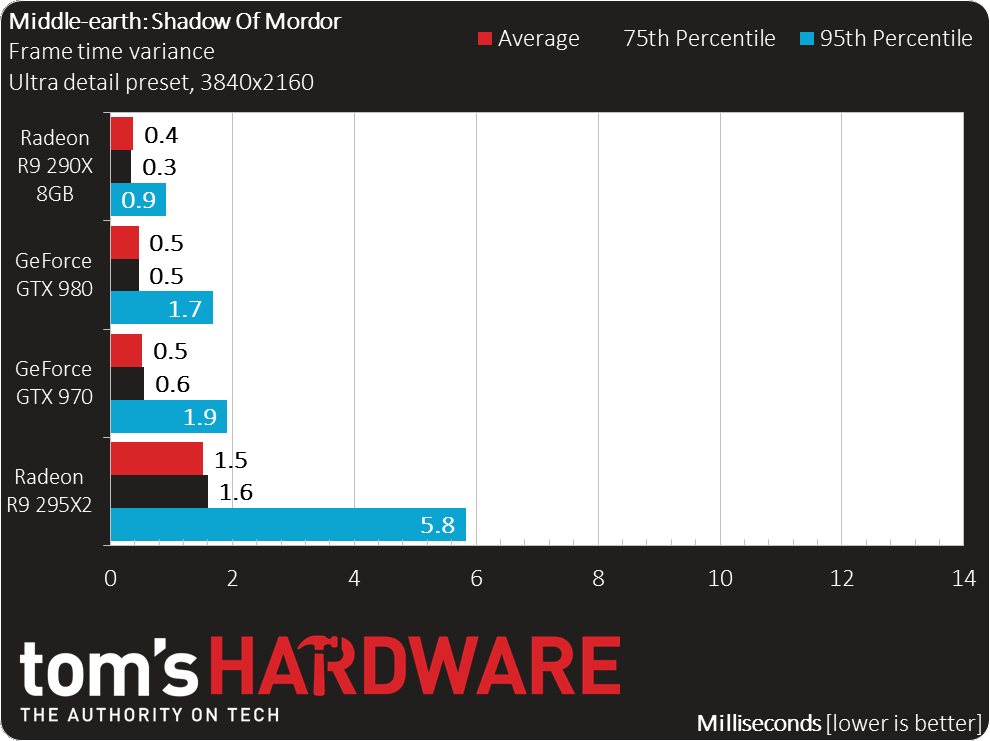
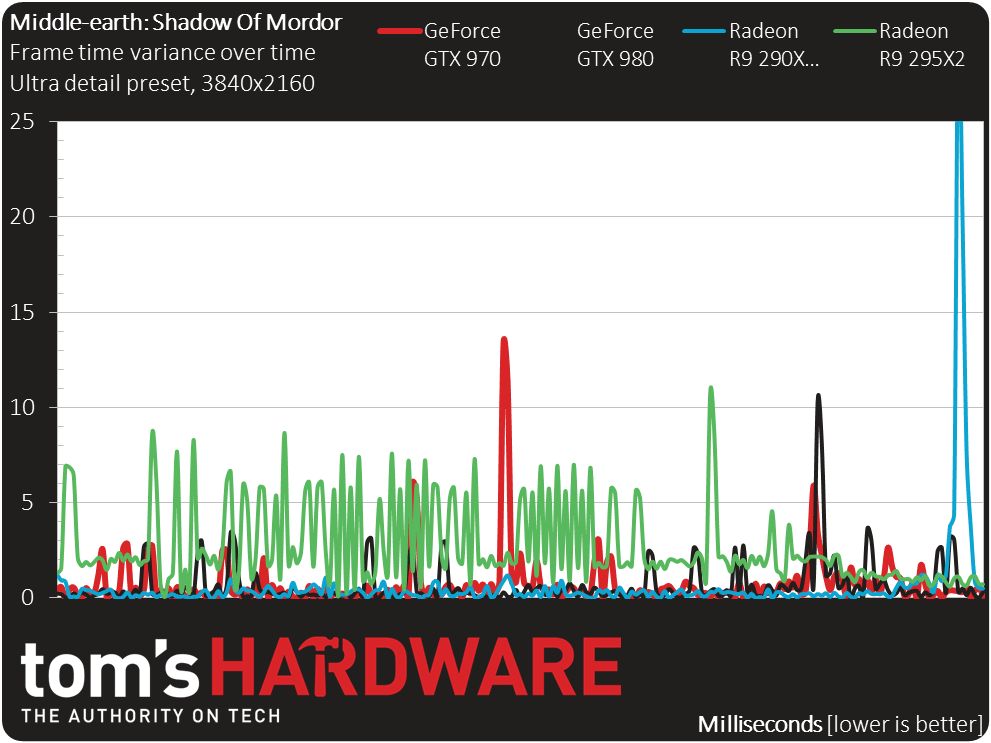
Despite the taxing workload, only the GeForce GTX 970 is pushed below 30 FPS. Even then it remains playable. The other cards offer a small minimum frame rate advantage. At first glance, the Radeon R9 295X2 appears to boast a big advantage. But the frame rate over time chart shows significant dips in the rate, and frame time variance is higher than we're comfortable with.
CPU And Graphics Benchmarks
CPU performance matters as well. We used the GeForce GTX 980 at 1920x1080 with ultra details enabled to see how the most demanding graphics affect a variety of processors.
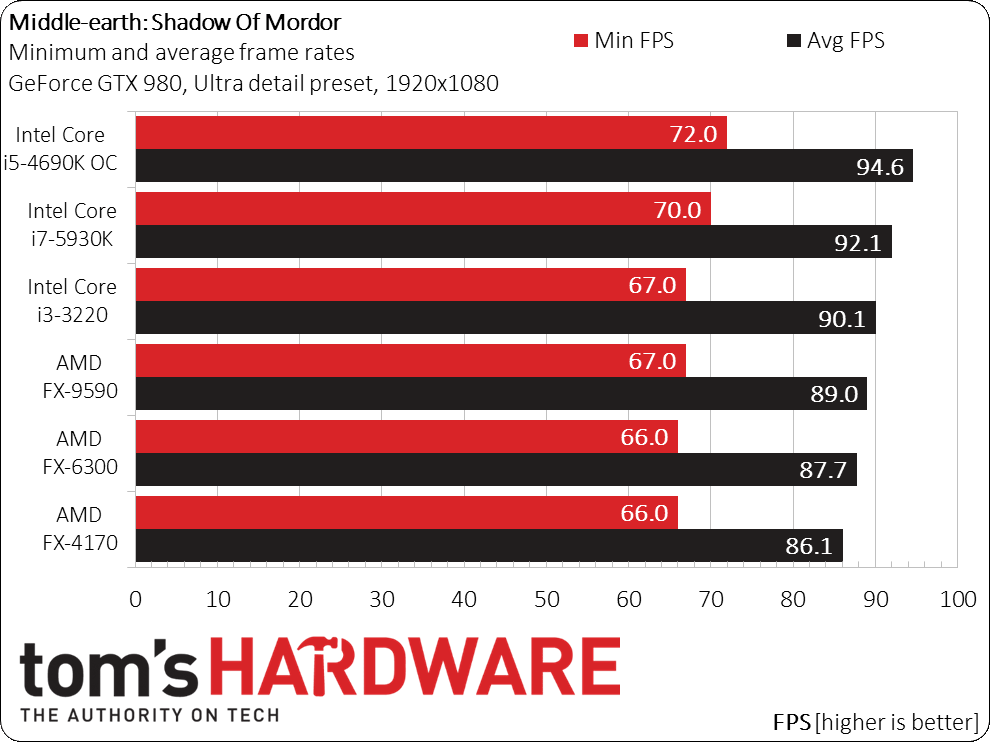
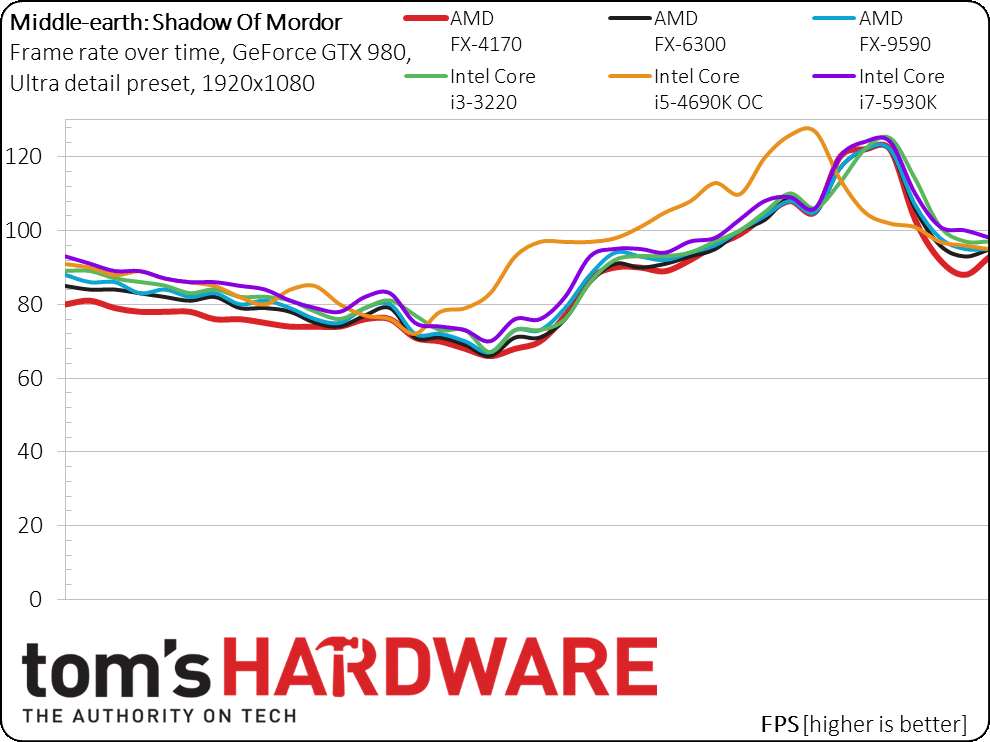
As you can see, the Lithtech engine doesn't appear limited by the processor it's run on, particularly when we emphasize graphics performance. Low-end models help generate similar frame rates as the most capable processors on the market.
Now, we'll illustrate what happens when you choose a texture resolution setting higher than the game recommends. In this case, we used a 1GB Radeon R7 260.
Get Tom's Hardware's best news and in-depth reviews, straight to your inbox.
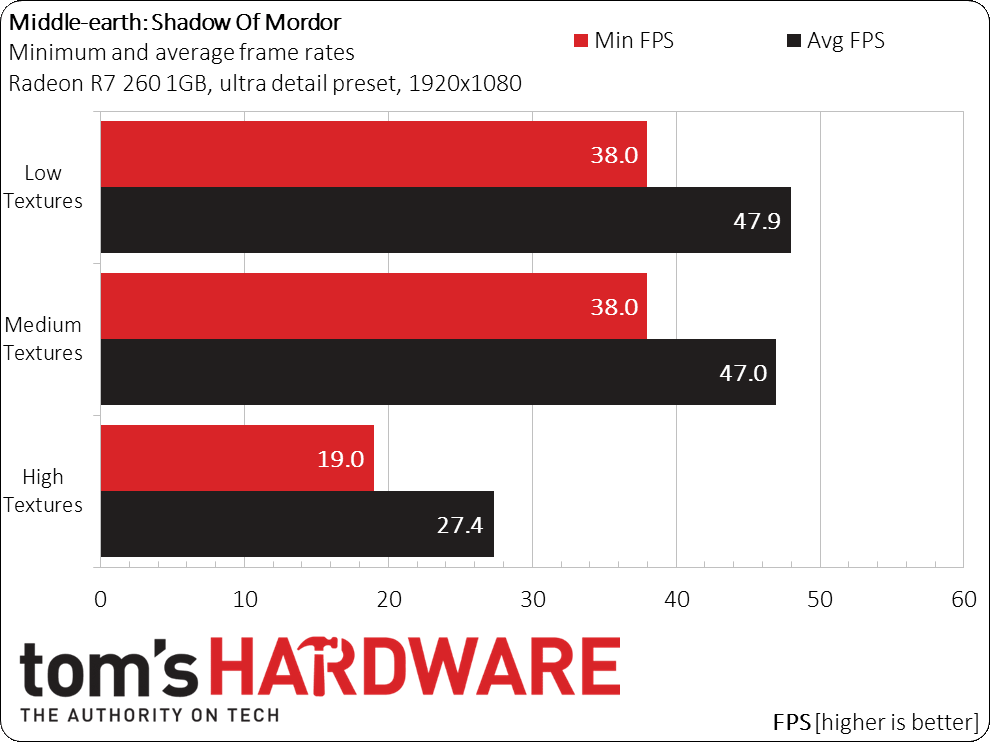
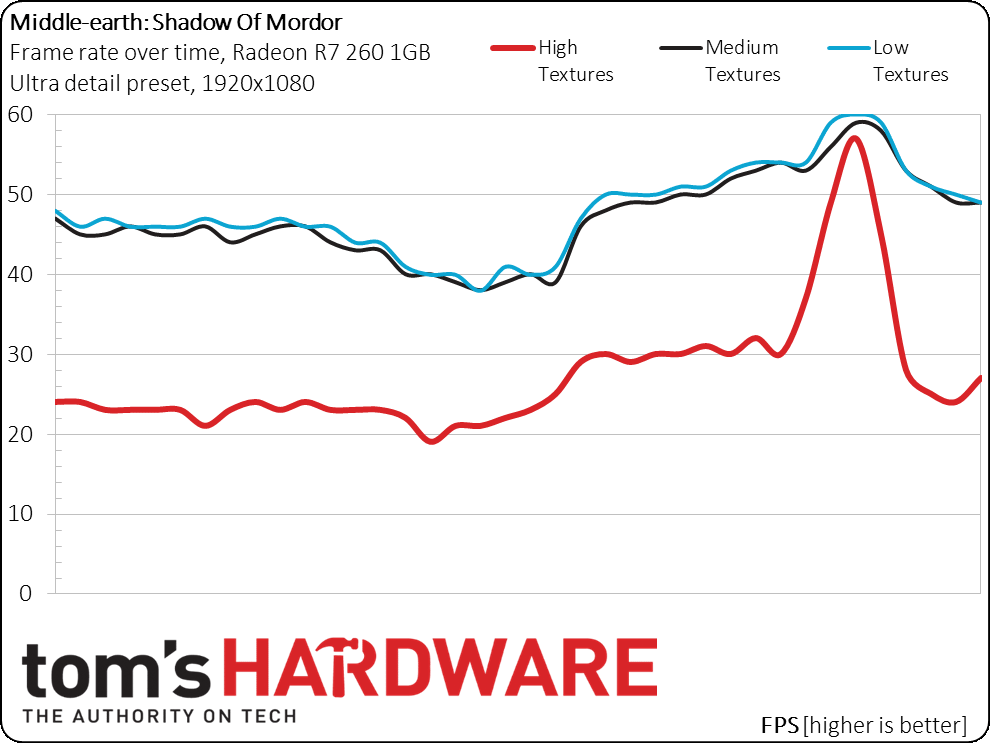
The settings menu told us to go with the low texture setting to complement our 1GB card. But from these numbers, it seems to be conservative in its guidance. We were able to bump up to the medium setting without a performance penalty. Then again, certain parts of the game might exact a greater texture load than the canned benchmark, so you might want to stick with the game's recommendation after all.
Current page: Results: 1440p, 4K, CPU And Graphics Benchmarks
Prev Page Results: 720p And 1080p Next Page High Fidelity, But Excellent Performance On Mid-Range Hardware-
Neilbob It's nice, for once, to see a game that doesn't particularly favour one brand of CPU or GPU over another. A slight advantage for AMD on the GPU side perhaps, but nothing extraordinary.Reply -
blackmagnum I hope it doesn't ruin the Tolkien franchise and gets competitive with the Elder Scrolls.Reply -
Cryio Poor Nvidia buyers.Reply
The 760 was for some time a recommended card in its price bracket because of 7950 performance at a lower price and now it's slower than a 270X, which is a 7870.
Not to mention the 280/285 is usually same price or cheaper than the 760.
Pff. -
Cryio Seems like I'll have to play the game with textures on Medium on my 560 Ti.Reply
Do they look decent enough at that level of quality ? -
slyu9213 I have to say my experience with Textures has been the same as your testings. With my 7850 1GB they recommended Low Textures but I had minimal impacts when I Medium Textures. Additionally the game recommends Medium Textures for 2GB of VRAM but I was able to run High Textures on my 650M with minimal to no impacts (DDR3 version). By the looks it seems they really are conservative and everyone may be able to run one texture quality higher than the game recommends.Reply -
Sakkura I wonder why the R7 250X was not tested at 1080p Medium. It did very well at 1080p Lowest, so it would have been nice to see if it was still playable at Medium. Would have been more useful to know whether it would run at 25 or 40 FPS than to know that the R9 285 runs at 93.7 FPS at those settings.Reply -
photonboy Sakkura,Reply
You can't expect them to run every combination of cards and settings. There's enough information here to help someone decide whether to buy or if they have what settings to use.